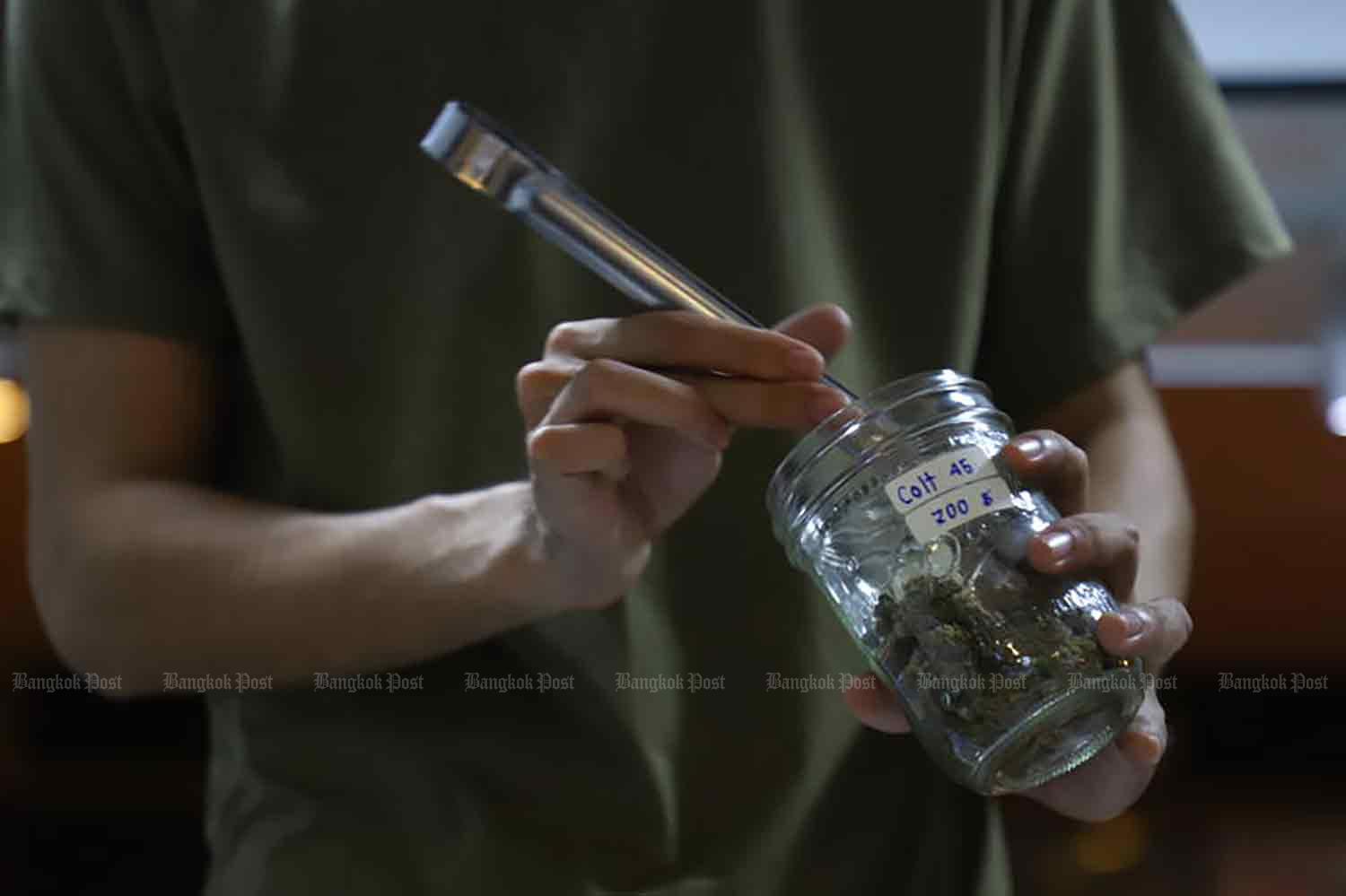
Pot-smoking shops are illegal now that the Ministry of Public Health's announcement declaring the flowers of marijuana plants to be a herb requiring strict control has taken effect, the ministry warned on Tuesday.
The controlled herb regulation, dated Nov 11, 2022, was announced in the Royal Gazette last Wednesday and took effect the following day, said Dr Thongchai Lertwilairatanapong, director-general of the Department of Thai Traditional and Alternative Medicine (DTTAM).
The announcement is aimed primarily at curbing the abuse of cannabis for recreational purposes, which had been increasing since its decriminalisation.
The announcement came while the coalition Bhumjaithai Party still is pushing to pass a bill on cannabis and hemp which it has touted as an effective legal mechanism to ensure that cannabis will be strictly used for medical purposes only.
Aside from prohibiting businesses from offering to their customers cannabis smoking space, the new ministerial announcement prohibits selling cannabis to people under 20 years of age, to pregnant women and mothers breastfeeding babies, and to students at all levels of education, he said.
The same announcement also prohibits the selling of cannabis through vending machines, electronic means and internet-based channels, Dr Thongchai said.
''Smoking cannabis in public is also strictly prohibited under the same announcement, including in a temple or any other religious place, a registered dormitory, a public park, a zoo or an amusement park,'' he said.
Since flowers of cannabis plants are now controlled herbal products, they can be sold lawfully only by people with a proper licence, including medical doctors, veterinarians and practitioners of Thai traditional medicine, applied Thai medicine, folk medicine and Chinese traditional medicine, he said.
These professionals and practitioners are also required to strictly follow the 1999 Act on protection and promotion of the wisdom of Thai traditional medicine, or else they may end up facing up to one year in prison or/and fine of up to 20,000 baht, he said.
Dr Tewan Thaneerat, deputy director-general of the DTTAM, said the department has recently established a depot for storing marijuana grown locally and harvested for supplying to producers of cannabis products for medical use such as cannabis oil extracts.
So far, 3.5 tonnes of cannabis collected from 93 registered growing sites have been stored at the depot, he said.
These materials, worth altogether 22.18 million baht, will be first tested to assess their quality, especially in terms of contamination with insecticides, pesticides, heavy metals, and microbes, he said.







